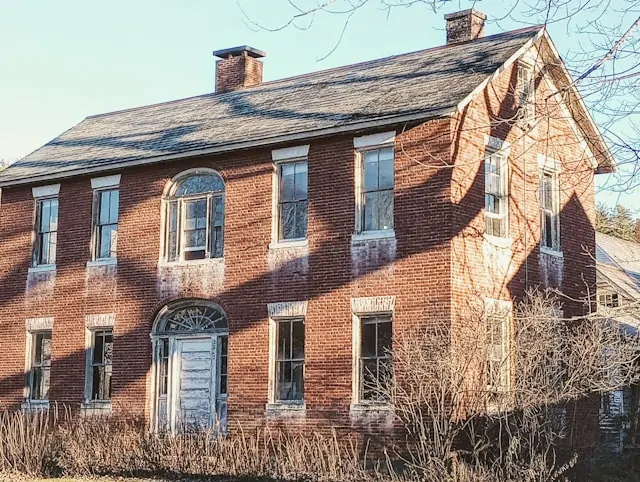Living in safe, well-maintained housing is essential for the health and wellbeing of every tenant. In Dorchester, where many properties range from historic homes to modern flats, housing conditions can vary greatly. When landlords fail to carry out timely repairs, tenants are not only left to live in discomfort but may also suffer serious health consequences.
This blog explores how housing disrepair affects tenant health, what the legal responsibilities of landlords are, and how tenants in Dorchester can take action if their homes are unsafe or unhealthy.
What is considered housing disrepair?
Housing disrepair refers to any damage or fault in a rented property that makes it unsafe, unfit to live in, or affects the tenant’s comfort and health. This may include:
- Damp and mould
- Leaks or water damage
- Faulty heating or plumbing
- Broken windows or doors
- Structural issues
- Pest infestations
- Unsafe electrics or gas installations
Under the Landlord and Tenant Act 1985 and the Homes (Fitness for Human Habitation) Act 2018, landlords are legally obligated to keep rental properties in a good state of repair. This applies to both private and social housing landlords.
How housing disrepair affects physical health
A neglected property can cause or worsen a range of physical health issues. Common health problems linked to poor housing conditions include:
Respiratory issues
Mould and damp are common in properties that are poorly ventilated or have water leaks. Long-term exposure to mould spores can trigger or worsen conditions, such as asthma, bronchitis, and other respiratory infections. Children and older adults are especially vulnerable.
Allergies and skin conditions
Dust mites, mould and pest infestations can cause allergies, eczema, and other skin irritations. These conditions are often exacerbated when the disrepair is left unaddressed for long periods.
Accidents and injuries
Loose floorboards, broken stair rails, or damaged flooring can increase the risk of falls and injuries. Faulty electrics also pose a serious hazard, especially for families with young children.
Cold-related illnesses
Lack of heating or poor insulation can make a property excessively cold in winter. Living in cold homes has been linked to hypothermia, heart problems, and weakened immune systems.
The psychological impact of poor housing conditions
While physical health problems are often more visible, the mental health consequences of living in disrepair can be just as severe. Many tenants in Dorchester and beyond report increased levels of stress, anxiety, and depression when dealing with long-term issues in their homes.
Stress and anxiety
The uncertainty of not knowing when repairs will be made, combined with the discomfort of living in a damaged home, can cause significant stress. This is particularly true when landlords fail to respond or take the issue seriously.
Depression
Persistent issues like damp, infestations, or lack of hot water can wear down a tenant’s morale. This is made worse when tenants feel powerless or ignored in their attempts to get repairs completed.
Impact on children
Children raised in homes with severe disrepair are at greater risk of developing mental health issues. Poor housing can also affect their ability to study or sleep, which impacts their performance in school and overall development.
Landlords in Dorchester have a legal responsibility
Landlords have a legal duty to ensure that rented properties are fit for human habitation and are kept in good repair. These responsibilities include:
- Maintaining the structure and exterior of the property
- Ensuring the proper working order of installations for heating, water, gas, and electricity
- Addressing any hazards that make the property unsafe
Failure to meet these standards could result in legal action. Tenants in Dorchester are encouraged to document all issues and keep copies of any correspondence with their landlord.
Steps tenants in Dorchester can take
If you are living in a property with disrepair, here are the recommended steps to follow:
- Report the issue to your landlord
Always start by notifying your landlord in writing. Describe the problem clearly, include dates, and attach photographs if possible. This creates a record in case legal action becomes necessary.
- Allow access for repairs
Your landlord may need to inspect the property or send contractors. Ensure you allow reasonable access, as this is a legal requirement.
- Seek help if nothing is done
If your landlord does not act within a reasonable time, you can escalate the issue. Contact your local council’s housing team, especially if the problem is a health hazard. Dorchester residents can reach out to Dorset Council’s Environmental Health team.
- Consider legal action
If the problem is serious and ongoing, you may be entitled to take legal action. You could be eligible for compensation and a court order requiring the landlord to make repairs.
How Marley Solicitors can help tenants in Dorchester
At Marley Solicitors, we have helped many tenants in Dorchester and the surrounding areas take legal action against negligent landlords. Our team understands the emotional and physical toll that housing disrepair can cause.
We offer:
- Free initial consultations
- Clear advice on your rights
- Help in gathering evidence and building a strong case
- Support in negotiating with landlords or pursuing court action
You do not have to live in substandard conditions. Legal protections exist to ensure your health and safety, and our team is here to support you every step of the way.
Living in housing disrepair is more than just an inconvenience. It can have lasting effects on your physical and mental health. If you are a tenant in Dorchester and feel your landlord is neglecting their duties, it is important to take action.
Document the problems, seek support, and know that you have legal rights to safe and healthy living conditions. Marley Solicitors is here to help you assert those rights and ensure your home is fit for living.



